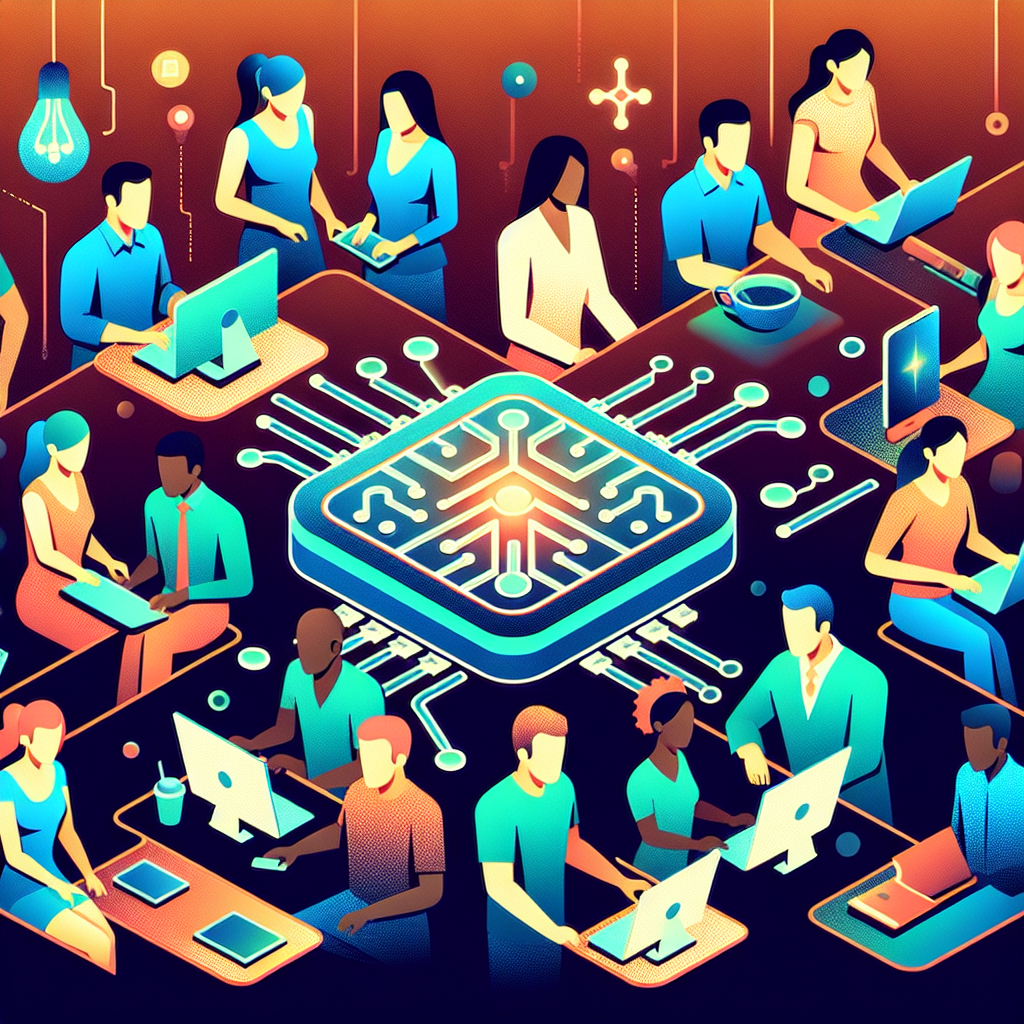AI democratization refers to the process of making artificial intelligence technology more accessible and available to a wider range of users, including individuals, businesses, and organizations. This trend has the potential to have a significant impact on the workforce, as it can change the way we work, the skills we need, and the roles we play in the economy.
One of the key ways in which AI democratization is impacting the workforce is by automating tasks that were previously done by humans. This can lead to job displacement in certain industries, as AI algorithms are able to perform tasks faster, more accurately, and often more cost-effectively than humans. For example, AI-powered chatbots are increasingly being used in customer service roles to handle routine inquiries and provide support to customers. This can free up human employees to focus on more complex and strategic tasks, but it can also lead to job losses for those who were previously employed in customer service roles.
However, AI democratization also has the potential to create new job opportunities and roles in the workforce. As AI technology becomes more accessible, businesses and organizations are able to leverage it to improve their operations, make better decisions, and innovate in new ways. This can create a demand for workers with skills in AI development, data analysis, and machine learning, as well as for those who can effectively integrate AI technology into existing business processes.
Additionally, AI democratization can empower workers to be more productive and efficient in their roles. For example, AI-powered tools can help workers automate repetitive tasks, analyze large amounts of data quickly, and make more informed decisions. This can lead to increased job satisfaction and performance, as workers are able to focus on tasks that require human judgment and creativity, rather than on mundane and repetitive tasks.
Overall, the impact of AI democratization on the workforce is complex and multifaceted. While it has the potential to disrupt certain industries and lead to job displacement, it also has the potential to create new job opportunities, empower workers to be more productive, and drive innovation and growth in the economy.
FAQs about the Impact of AI Democratization on the Workforce
Q: Will AI democratization lead to widespread job losses?
A: While AI democratization has the potential to automate certain tasks and lead to job displacement in some industries, it also has the potential to create new job opportunities and roles in the workforce. It is important for workers to develop skills in AI development, data analysis, and machine learning in order to remain competitive in the evolving job market.
Q: How can businesses and organizations leverage AI democratization to improve their operations?
A: Businesses and organizations can leverage AI technology to automate routine tasks, analyze large amounts of data quickly, and make more informed decisions. This can lead to increased efficiency, productivity, and innovation in the workplace.
Q: What skills will be in demand in the workforce as a result of AI democratization?
A: Skills in AI development, data analysis, machine learning, and the integration of AI technology into existing business processes will be in high demand in the workforce. It is important for workers to develop these skills in order to remain competitive in the evolving job market.
Q: How can workers prepare for the impact of AI democratization on the workforce?
A: Workers can prepare for the impact of AI democratization on the workforce by developing skills in AI technology, data analysis, and machine learning. It is also important for workers to be adaptable, flexible, and willing to learn new skills in order to thrive in the evolving job market.

